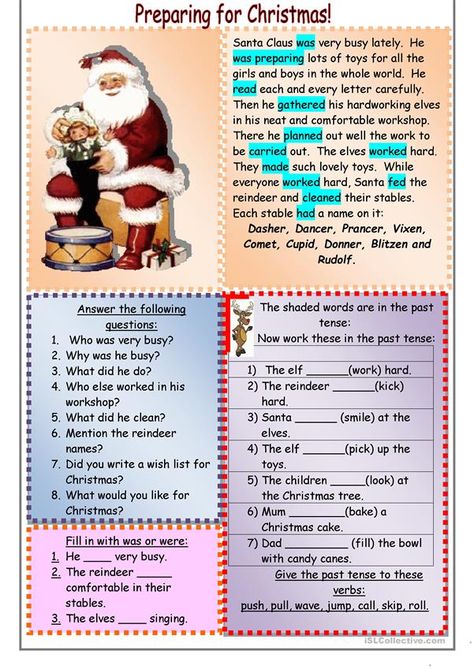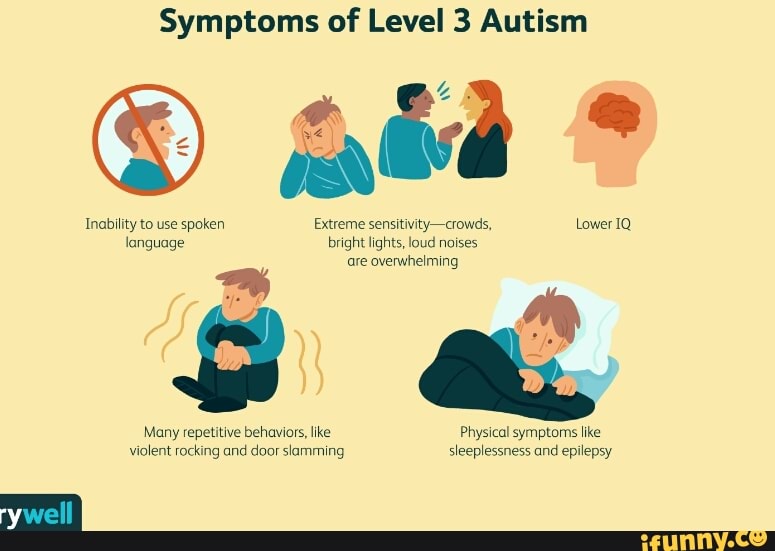How to tell a child about santa claus
10 Ways To Tell Your Child The Truth About Santa
There comes a dreaded time in every parent’s life when they have to have “that” conversation with their kids. Nope, not the puberty, period, or sex talk, but the Santa talk. For years, parents have been secretly buying and hiding tons of gifts, then getting up in the middle of the night to wrap and/or place them inside stockings (with care) under the guise that they are from Jolly St. Nick. Kids believe that he magically enters the house in the middle of the might. Parents tell stories about Santa to their kids and warn them that he’s watching to see if they're being good or bad. They take photos at the mall and mail carefully crafted letters. It’s all part of Christmas tradition with kids.
RELATED: 10 Ways To Prep For Christmas (Even Though It’s October)
But at some point, as kids get older, they start to question things. How does Santa get inside when we don’t have a chimney? Is it really possible for Santa to visit every kid in the entire world in one night? Why does Santa look different this year versus last? And why does daddy have cookie crumbs on his pajamas? When you know it’s time to have “the talk” and tell them the truth, here are some ways you can do it.
10/10 Tell Them About Everyone at Once
Just rip the Band-aid off and tell them about all of the magical creatures that don’t really exist. Chances are, once you reveal the truth about Santa, they’re going to start questioning everything they know about the Easter Bunny, the Tooth Fairy, and others.
Prepare yourself for those questions and explain that, in every case, it was all about magic and believing in something. And whether Santa is real or not, they should still behave well all year and appreciate all of the gifts they receive, whether it’s toys from Santa, chocolates from the Bunny, or $5 bills from the Tooth Fairy.
9/10 Explain the Magic of Christmas
The point of introducing Santa to kids is to make them believe in the magic of Christmas. Our immense commercialization of the holiday has changed that. Explain to them that even though they now know that Santa isn’t real, the idea of him is one worth carrying on in order to help them enjoy the true magic of Christmas.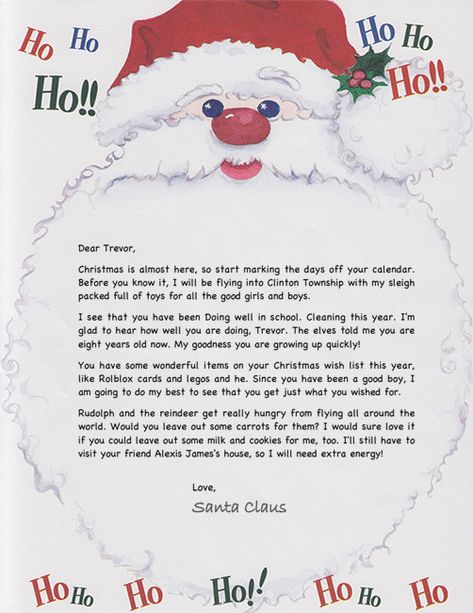
So even if they don’t believe anymore, they can think of Santa as someone who helps them do their best all year long and bring joy to everyone they meet. Ask them how they want to show they believe: maybe it’s putting together a gift basket for a child in need, or volunteering at a soup kitchen, for example.
8/10 Offer To Still Label Gifts From Santa
They might be upset about knowing the truth not only because that aspect of Christmas is ruined, but also because, let’s face it, they think it means they’ll no longer receive those gifts. Soften the blow by offering to continue to buy an extra gift or two, or small stocking stuffers, and fill their stockings so they can still wake up and have something special to open, even if they know it’s all from you.
RELATED: 10 Celebrity Babies Born At Christmas
It’s all about the element of joy and surprise, and if they know they can still get that, it might hurt a bit less. Plus, they’ll know who to thank once they’re done opening everything!
7/10 Tell Them the Story of When You Found Out
Start off with the story of how you found out the truth.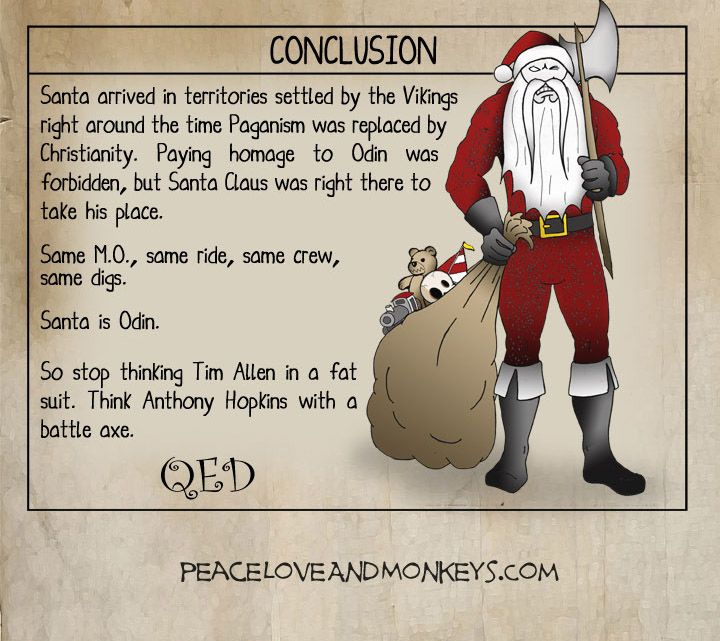 Whether you were younger than they are at the time, older, or maybe around the same age. Regardless of the commonality in age, find a way to make your experience relatable to theirs (or maybe yours was traumatizing or hilarious, which will make them feel better).
Whether you were younger than they are at the time, older, or maybe around the same age. Regardless of the commonality in age, find a way to make your experience relatable to theirs (or maybe yours was traumatizing or hilarious, which will make them feel better).
If you explain that their grandma and grandpa had you believing the same thing when you were a child, as did so many other kids’ parents, they might not feel resentful. And they’ll appreciate that you were only trying to make Christmas really special for them, just as your parents did for you.
6/10 Have Older Kids in the Family Talk With Them After
If your child has an older sibling, cousins, or other family members who are kids as well and already know the truth, have them sit down and talk with your child to let them know it’s okay and that they were all in the same position before.
The kids can help uplift your child and make them realize that there were good intentions, and that Santa can still be alive in their heart even if he isn’t actually a jolly overweight man with a white beard and a red suit.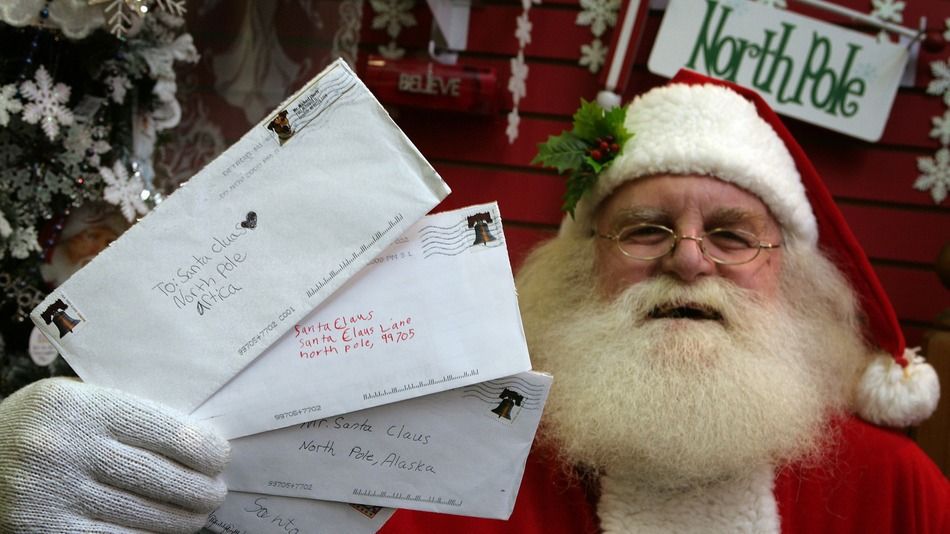
5/10 Find a Book or Movie First
Find a book about the magic of Christmas, or watch a Christmas movie that will put your child in a calm and relaxed mood, and feeling good about Christmas. Perhaps a movie that touches on the topic of believing and not believing and discusses what the magic of Christmas is really about.
RELATED: 10 Ways To Celebrate Your Kid’s Birthday When It Is At Christmas
This might help your child see that Santa isn’t real in the physical sense, but the magic and joy around him and what he stands for it.
4/10 Write Down a List of Reasons Why Kids Believe in Santa
Give your child a list of why it’s still important to believe in what Santa stands for, even if they now know that a strange and jolly man doesn’t enter their home in the wee hours of the morning with a fleet of reindeer and a sleigh parked on your roof.
Show them that they can still believe in all of those reasons, like that someone is watching over them to make sure they make the nice list this year and not the naughty, and that their wishes can come true.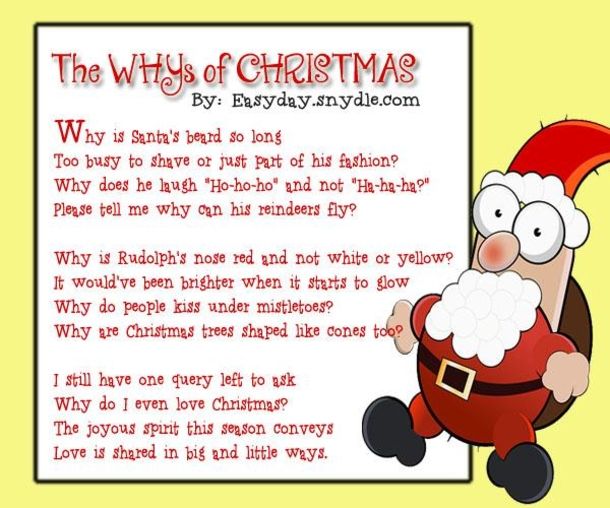 Seeing it all on paper might make them OK with the truth.
Seeing it all on paper might make them OK with the truth.
3/10 Make Sure They Don’t Tell Younger Siblings
If you have multiple children, the subject of Santa can get touchy, especially with their youngest ones. As older children begin to question things, and friends in school reveal presumed facts that their older siblings tell them, kids will get wise to the fact that Santa isn’t real.
If you still want to keep the magic alive for the youngest kids, do your part at home by asking your older kids not to spill the beans to the little ones... at least not yet. They will feel special because they know something their younger siblings don’t, and you can promise to have them help with the process once you’re ready to tell the other kids, and even have them help with the shopping, wrapping, and stocking stuffing until then.
2/10 Wait Until They Come To You
Sometimes it’s best not to say anything and let kids run through the questions and suspicions they have in their minds for a while.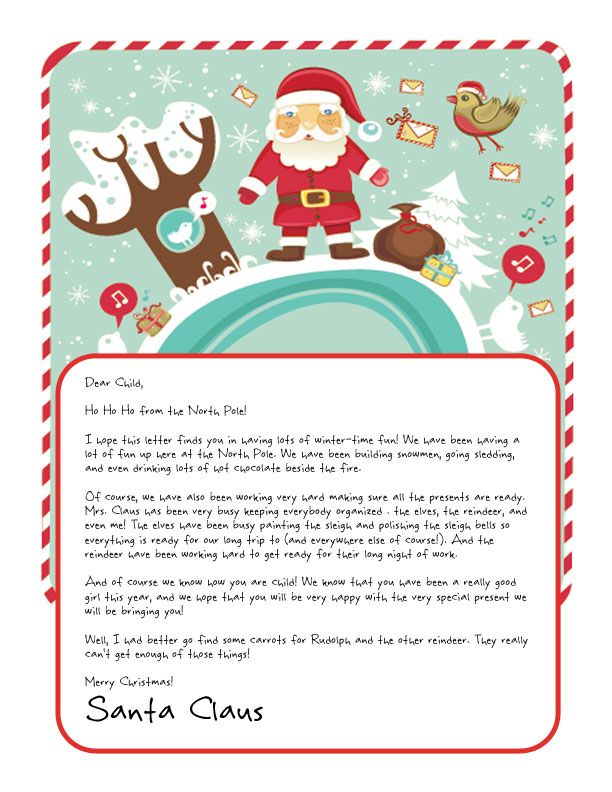 Eventually, they’ll come to you and flat out ask. At that point, you can make the decision to deny, deny, deny, or tell them the truth.
Eventually, they’ll come to you and flat out ask. At that point, you can make the decision to deny, deny, deny, or tell them the truth.
They might appreciate your honestly, and actually feel validated that they figured it out on their own more so than hurt and upset. So waiting it out could actually work in your favor.
1/10 Take Them Somewhere to Celebrate the Milestone
After you’ve broken the news, soften the blow by planning a day or night out to get your child’s spirits up, maybe to a Christmas-themed party or amusement park, a skating rink, ice cream parlor, or dinner date to get their mind off things. You could even just drive through the neighborhood at night to look at all of the lovely lighted houses.
Let them see all of the joy Christmas brings, including to the faces of younger kids who absolutely love the idea of Santa and believing in him. Just seeing the smiles on kids’ faces as they wait in line for a photo with “Santa” might be enough to have your newly-informed child admit “I get it. ”
”
NEXT: 10 Easy Christmas Crafts For Kids
Is Santa Real? How to Tell Kids About Santa Claus
Christmas Eve has its share of wonderful traditions: Playing Christmas music, eating Christmas Eve dinner, putting out Christmas cookies for Santa and staying up all night to try to get a glimpse of him as he puts the presents under the tree. But eventually, kids naturally wonder how Santa visits so many houses in one night (easy — he's magic), how he eats so many cookies without being sick (practice) and, sadly, whether he exists at all. Here's what to tell kids about Santa when those questions inevitably arise.
Is Santa real? Of course he is.
Let's begin with something we all know is true: Santa Claus is real. New York Sun's newspaper reported it in 1897 in response to an inquiring letter form an 8-year-old Virginia O'Hanlon. "Yes, VIRGINIA, there is a Santa Claus," newsman Francis Pharcellus Church wrote. "He exists as certainly as love and generosity and devotion exist, and you know that they abound and give to your life its highest beauty and joy. Alas! how dreary would be the world if there were no Santa Claus. It would be as dreary as if there were no VIRGINIAS."
"He exists as certainly as love and generosity and devotion exist, and you know that they abound and give to your life its highest beauty and joy. Alas! how dreary would be the world if there were no Santa Claus. It would be as dreary as if there were no VIRGINIAS."
Francis Pharcellus Church must've done his research: There are historical records about St. Nicholas going all the way back to the 3rd Century. According to those documents, he was probably born around 280 A.D. somewhere in modern-day Turkey. His kind acts made him the patron saint of children.
And anyone who's seen Miracle on 34th Street understands the following: The fact that the postal system delivers letters to the North Pole proves that the federal government recognizes a Santa Claus. (And that's proof that can hold up in court!)
Now that that's all taken care of, it's natural for kids to eventually express some hesitation about Santa's magic. When those times arise, it can be hard to figure out how to respond to kids when the doubts start to creep in. Here's what to look out for, and what to tell kids about Santa when they start to probe for answers.
When those times arise, it can be hard to figure out how to respond to kids when the doubts start to creep in. Here's what to look out for, and what to tell kids about Santa when they start to probe for answers.
Keep an eye out for questions, and how they're asked.
Questioning Santa Claus is a natural part of getting older. What parents can control, though, is how they respond to them. Are kids just probing for more information about Santa, or is something else at work?
Once you notice the questions coming more often, it might be time to figure out how to wind things down. "Sometimes, it’s less about when your child is ready and more about when you are ready," says MegAnne Ford, a parenting coach and owner/CEO of Be Kind Coaching. "We as adults started the story, and it's our job as adults to finish the story."
While one or two queries might not signal the end, it could be time to start preparing.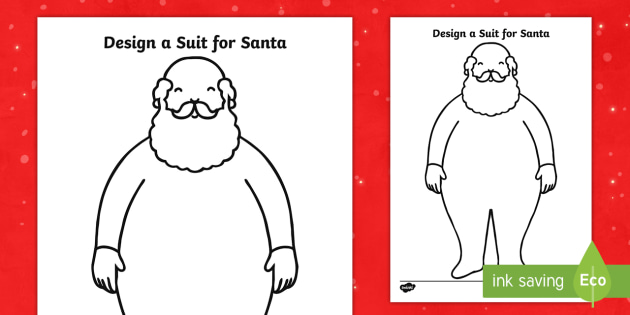 "As soon as your child starts questioning, it's time to start the planning process," Ford says. "Think of this as an invitation to decide how your family will view the story of Santa, in your unique way."
"As soon as your child starts questioning, it's time to start the planning process," Ford says. "Think of this as an invitation to decide how your family will view the story of Santa, in your unique way."
Related Story
- 42 Christmas Traditions to Start With Your Family
You don't have to come out with it all right away. "When a child starts asking if Santa Claus is real, most parents I know — myself included — either say 'of course,' or redirect the question to not quite answer it," says Emily Edlynn, Ph.D., who runs The Art and Science of Mom. "When a child is satisfied with this, even if they start to have doubts, they may not be ready to stop believing."
But, eventually, there may be a shift in the way they ask the question. "When a child says something along the lines of, 'Santa isn't real, is he?' it can be useful to reflect the question back to them to figure out why they think so," Dr. Edlynn says. When they're older and can think more critically, they'll tell you Santa isn't real, and especially when their peers are talking about Santa not being real. These are good indicators they're ready to hear the truth."
When they're older and can think more critically, they'll tell you Santa isn't real, and especially when their peers are talking about Santa not being real. These are good indicators they're ready to hear the truth."
As for when the shift starts to happen, it's different depending on the child, but expect the questioning to get serious somewhere between the ages of 7 and 10. In 2019, House Method surveyed more than 4,500 families across the United States, and found the overall average age for no longer believing in Santa Claus is 8.4 years old. (But it varies by state: Kids in Mississippi generally believe until they're 10, while kids in Oregon stop believing at 7.)
Respond to your child's emotions.
Children react differently to hearing the news about Santa. "My 9-year-old daughter seemed proud to have matured into this grown-up secret she could keep from her younger siblings!" Dr. Edlynn says. Others might feel embarrassed that they believed for so long, or are sad to lose the version of the Santa they knew.
Don't try to direct your kids to react a certain way. "Your role as a parent is not to govern your child’s emotions, whether positive or negative," Ford says. "It's your role to create a safe, loving and validating environment. Make sure that the focus is on honesty, connection and compassion, and that'll ensure the conversation ends in everyone’s favor."
He exists as certainly as love and generosity and devotion exist.
You can also focus on ways to keep the good feelings associated with Santa going. "It's fun to talk to kids about ways we can keep up the Santa spirit during the holidays even if we are too old to believe in the red-suited man handing out gifts all night," Dr. Edlynn says. "Talking about the spirit of Santa — generosity, kindness, happiness — can help keep the magic alive, no matter our age."
Evolve to the next step.
You can use this as an opportunity to start a new kind of tradition with your family. They may feel pride in finally being old enough to make Christmas Eve dinner with the family chef, for example, showing them that they gain Christmas magic as they age instead of just losing it.
They may feel pride in finally being old enough to make Christmas Eve dinner with the family chef, for example, showing them that they gain Christmas magic as they age instead of just losing it.
One anonymous parent, whose idea went viral through an admiring Facebook post, came up with a brilliant idea that takes that last point to the extreme: Tell children that, while they don't receive presents from Santa, they're now old enough to become Santa. She explains:
When they are 6 or 7, whenever you see that dawning suspicion that Santa may not be a material being, that means the child is ready. I take them out "for coffee" at the local wherever. We get a booth, order our drinks, and the following pronouncement is made: “You sure have grown an awful lot this year. Not only are you taller, but I can see that your heart has grown, too. [Point out 2–3 examples of empathetic behavior, consideration of people's feelings, good deeds etc, the kid has done in the past year].In fact, your heart has grown so much that I think you are ready to become a Santa Claus. You probably have noticed that most of the Santas you see are people dressed up like him. Some of your friends might have even told you that there is no Santa. A lot of children think that, because they aren't ready to BE a Santa yet, but YOU ARE ... We then have the child choose someone they know — a neighbor, usually. The child's mission is to secretly, deviously, find out something that the person needs, and then provide it, wrap it, deliver it — and never reveal to the target where it came from. Being a Santa isn't about getting credit, you see. It's unselfish giving.
While its exact origins are unclear, the little essay has circulated online forums for years, and before popping up in that viral Facebook post (where you can read more details about the mom's technique for revealing the Santa truth):
View full post on Facebook
Charity Hutchinson, the admirer who shared the story, told the Huffington Post that she doesn't know where it came from, but "I wish I could say I had thought of it myself ― it's pretty brilliant!" Since she has two sons, she wants to her children enjoy Santa at first but eventually learn that the holiday involves more than just presents.
"Christmas is about helping others, giving selflessly and being thankful for what you do have and not what you don't," she said. "Reading this parent's story made me feel like I could, even as a Christian, encourage my children to believe in him so that one day they could become a Santa and give to others." While that day may come faster than most parents like, it can be the beginning of a new holiday tradition for years to come.
Related Story
- Christmas Is Better Now That My Kids Are Adults
Caroline Picard
Contributing Writer
Caroline is a writer and editor with almost a decade of experience. From 2015 to 2019, she held various editorial positions at Good Housekeeping, including as health editor, covering nutrition, fitness, wellness, and other lifestyle news. She's a graduate of the Medill School of Journalism and dreams of the day Northwestern will go back to the Rose Bowl.
KFU psychologist told whether it is worth telling children the truth about Santa Claus | Media portal
How to refuse a child when he asks for an expensive gift, is it necessary to say that parents put toys under the Christmas tree, said IPE KFU associate professor.
How to refuse a child when he asks for a very expensive gift, how to tell him that the winter wizard does not exist, whether it should be done at all and at what age, said Associate Professor of the Department of Preschool and Primary Education of the Institute of Psychology and Education, Candidate of Psychological Sciences Svetlana Bashinova .
Researchers from the University of Exeter concluded that children stop believing in the existence of Santa Claus at the age of eight. A group of scientists also found the reason why children lose faith in New Year's magic and the main wizard.
The most common reason is the oversights of parents and an insufficiently responsible approach to organizing a holiday for children. After several situations, when parents did not foresee all the little things in advance, the child's faith in a fairy tale begins to fade over time. It turned out that children began to notice such situations at the age of eight.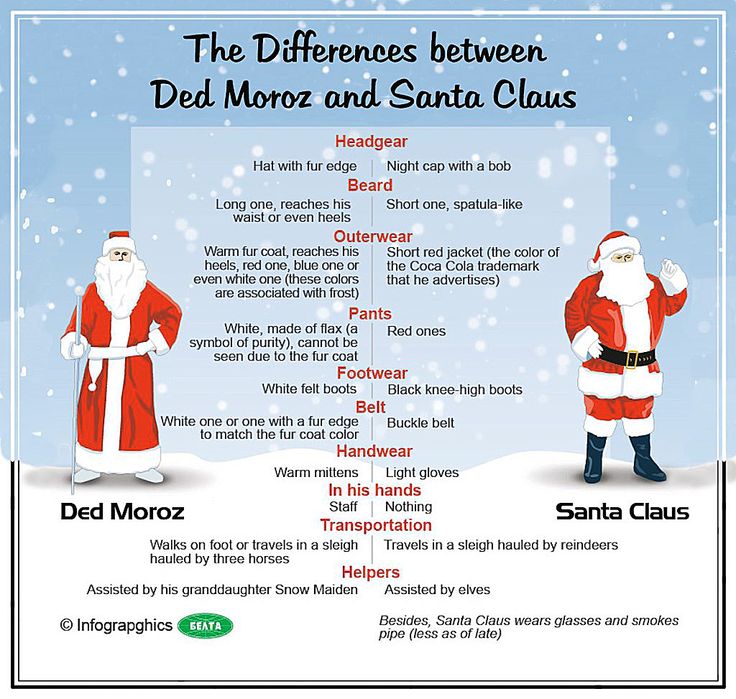 nine0003
nine0003
A journalist from the KFU press center decided to figure out what and how to tell children about Santa Claus, and turned to an expert - a psychologist of Kazan University Svetlana Bashinova .
"Santa Claus is, first of all, a holiday that should come to the kids and bring them joy and happiness," said Svetlana Nikolaevna. good old man with a white beard and a bag of gifts that he brings and leaves under the Christmas tree. We have very little joy in the lives of children. And to deprive them of this illusion is blasphemous. By telling the kid the truth, you will deprive them of the Fairy Tale, the Miracle. Of course, you can and live without it," the pragmatists will say. But it's better to let the kids believe in Santa Claus and the Snow Maiden than in different monsters, which, moreover, they are also afraid of." nine0003
The psychologist noted that until the age of seven children go through the so-called "mythological phase".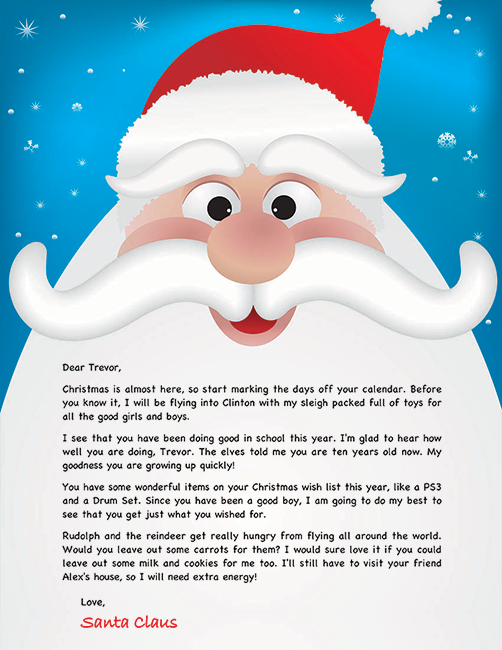
"Everyone is waiting for New Year's Eve with great impatience to make a wish. After all, people believe that the New Year will bring only good things. And depriving children of this feeling means depriving them of their childhood. In addition, it is during this period that the child's fantasy is actively developing and creativity."
The psychologist is sure that even if the child tells you that he knows the truth, he will still run in the morning to check if there is anything under the tree, because in his heart he still wants to believe in a miracle. nine0003
The psychologist did not name the age when children stop believing in the "good grandfather", specifying that everything depends on the child himself:
communicate in the family, but are driven into cartoons, then, of course, there will be no faith even at the age of five.
On the other hand, today's generation of young mothers, a kind of "advanced" parents, want to tell their children the truth right away.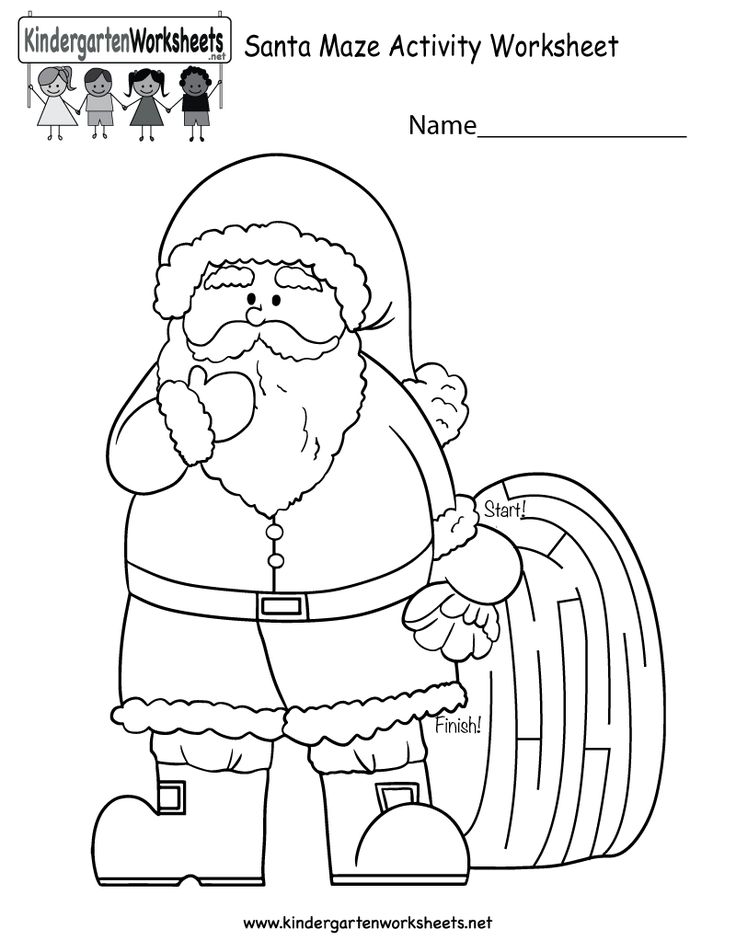 “How can you lie to a child?! I will not participate in this hysteria with fake grandfathers with wadded beards!” they say. And they tell one and a half year old babies that they put gifts under the Christmas tree. nine0003
“How can you lie to a child?! I will not participate in this hysteria with fake grandfathers with wadded beards!” they say. And they tell one and a half year old babies that they put gifts under the Christmas tree. nine0003
From a psychologist's point of view, this behavior is wrong. A child of 2-6 years old does not distinguish a fairy tale from reality. For him, Baba Yaga and the Snow Maiden are the same real characters as the neighbor on the porch. If you deprive a child of fairy tales about Santa Claus, then this will hit the child's self-esteem.
Many parents, the psychologist also notes, often manipulate the child: "If you behave badly, you will be left without gifts."
"Parents seem to say to him: "If you behave badly, don't expect anything good from life. You must be obedient, convenient, comfortable with us, and then you will receive a reward. The better you behave, the better Santa Claus fulfill your desires". But if the child still behaves badly and you decide to punish him in this way, be sure that he will remember for the rest of his life the day when everyone received gifts, but he, like the worst person in the world, does not Do not blame the solution of problems on Santa Claus - parents themselves need to be able to negotiate with their child and find ways to influence. 0003
0003
It happens, says the psychologist, that even 13-year-old teenagers believe in Grandfather, because, despite all the terrible, in the opinion of their parents, misconduct, he was still given a gift under the Christmas tree.
"In my opinion, a child should still receive gifts on New Year's magic night - this is a tradition."
The expert is sure that it is very important to explain the situation when parents do not want or cannot buy a gift that a child asked for Santa Claus:
"It is quite simple to explain about the gift that you give on behalf of Grandfather: Grandfather has a small pension (or there are a lot of orders, but he does not have time to deliver gifts to all the kids). The child will understand. And it will be better than on New Year's Eve to him they won’t give him anything, or they won’t give him what he needs.” nine0003
If the child came home upset, having learned the truth from other children, and at home even gets angry and offended by his parents because they deceived him, the psychologist advises to treat this situation with understanding and explain to the child that the fact that Grandfather No frost, does not mean that there is no more holiday. And this means that even realizing that Santa Claus does not really exist, we continue to believe in this fairy tale, full of incredible adventures and miracles, which comes with the Kremlin chimes. nine0003
And this means that even realizing that Santa Claus does not really exist, we continue to believe in this fairy tale, full of incredible adventures and miracles, which comes with the Kremlin chimes. nine0003
When it's time for a child to learn the whole truth about Santa Claus
The New Year is coming, and parents are already preparing to turn into Santa Clauses for their kids. Letters are opened to find out what the baby wants, false beards are bought, and in the evenings it is discussed in the kitchen - is the child too big for all these fairy tales? Maybe it's time to tell him that it's not Santa Claus who puts toys under the Christmas tree all these years? Or let him find out about it himself?
And if a child suddenly asks directly, what should parents answer? Should I continue to play along or be honest? And every year moms and dads go through this exciting time again and try to come up with new ways to confirm the existence of the fabulous Baggy Grandpa.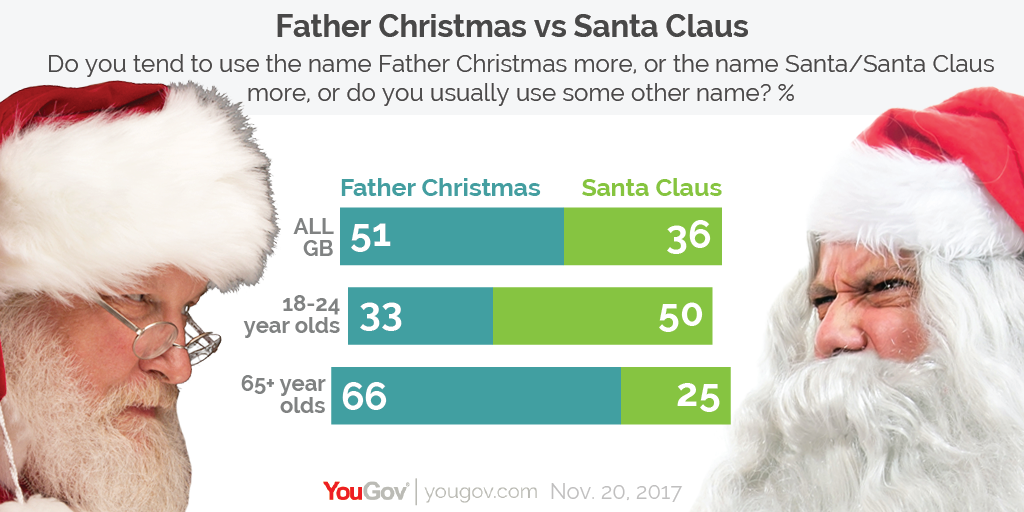
The editors of Tlum.Ru decided to find out at what age children "should be ready". We collected the opinions of psychologists and the stories of parents from thematic forums and social networks.
It's not about age
All psychologists agree that up to 6-7 years old it is even useful for a child to believe in Santa Claus. Fairy tales help kids develop their imagination, learn about the world and believe in the good. They will always have time to be disappointed in the world. But at the same time, there is not much difference in how much the child learns the truth, it does not depend on age, but on the baby himself and his environment. nine0003
WHAT DO PARENTS THINK ABOUT FATHER FROST IN KINDERGARTENS?
If a child goes to a kindergarten where everyone believes in Santa Claus, and his parents told him that there is no such uncle, then he will only fight off the team and will not take part in the general holiday. And most likely, they will try to convey this news to other children and ruin the matinee. Therefore, in kindergarten time, children usually do not need this knowledge.
And most likely, they will try to convey this news to other children and ruin the matinee. Therefore, in kindergarten time, children usually do not need this knowledge.
But at school, most likely, someone will tell the kid that there is no Santa Claus. Maybe not in elementary school, but in high school for sure. Although there are quite a few teenagers who continue to believe in a fairy tale and wait for a miracle for the New Year, even knowing that dad and mom gave them gifts in childhood. nine0003
How is the child supposed to know?
Psychologists do not advise children to tell the truth directly. This is quite cruel and is unlikely to be perceived in the way you imagine. The child will be offended both by how sharply you confronted him with this fact, and by how long you deceived him.
If your child does not guess yet, then you should not try to destroy the fairy tale with your own hands. Wait for the first suspicions, and then do not deny what is happening.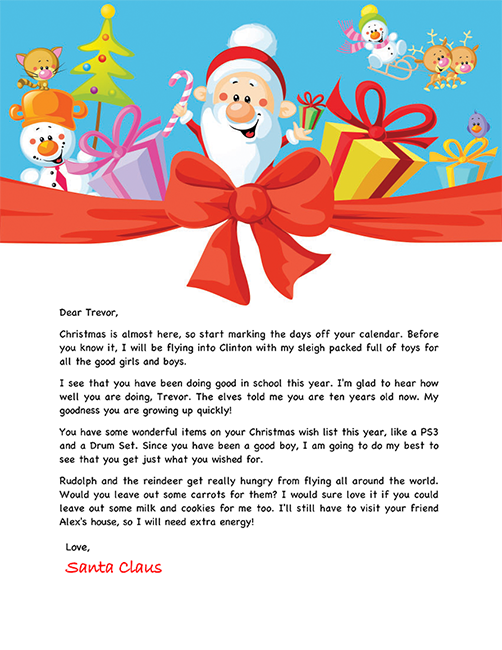 But don’t speak directly, leaving the child the opportunity to decide for himself whether he believes or not. nine0003
But don’t speak directly, leaving the child the opportunity to decide for himself whether he believes or not. nine0003
Yes, people on the street and at matinees are Father Frost's helpers, because he alone does not have time (especially since our grandfather does not have elves, only the Snow Maiden). These things are easier to explain. But if the child knows for sure that the gift was put not by Grandfather Frost, but just by grandfather, then we will have to talk seriously.
HOW NOT TO GIVE A CHILD GIFTS?
Psychologists advise two ways, honest and semi-honest. The first is to say something like: “Yes, Santa Claus does not exist, but the holiday is still magical. As a child, I myself adored Santa Claus and believed in him for a long time, and I wanted you to have the same faith in a miracle. nine0003
The second way, don't say anything directly. Disguised people are helpers, gifts are you this time, but Santa Claus may be and exists.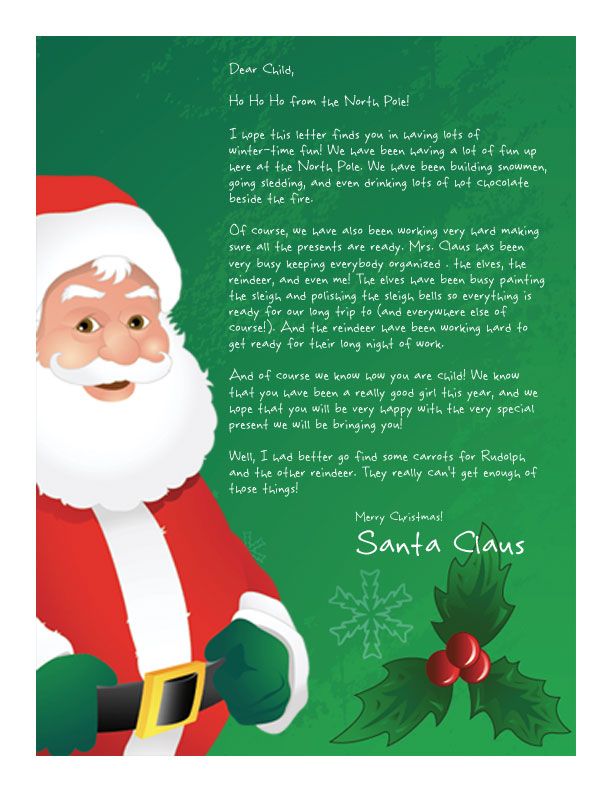 It exists as long as we believe in it. And if you stop believing, he will stop coming, as happened this year. In this way, you give the child a "retreat" and he can continue to believe in a fairy tale.
It exists as long as we believe in it. And if you stop believing, he will stop coming, as happened this year. In this way, you give the child a "retreat" and he can continue to believe in a fairy tale.
Many advise, at the first suspicion, to make it easier for the child to do his “detective work”. Make it so that he sees the gifts earlier or catches you ordering a toy on the Internet. The child may not ask anything, but simply think and understand. And then he will be happy with his insight. He knows, but you don't know that he knows. That's how! nine0003
But beware, many children have already realized that there is no Santa Claus, but they continue to support the game in order to receive more gifts. So an adult child may well play a trick on you for the sake of an extra box.
Santa Claus errors
Never associate the arrival of Santa Claus with good or bad behavior. Thus, you turn him from a fairy tale character into a supreme judge who decides the fate of the child. And somehow I don’t really want to wait for this ...
And somehow I don’t really want to wait for this ...
Do not play with an adult child. He will not be offended by the phrase: "When you were little ...". But it will offend you that you still consider him that way. Say that while he believed, you supported the game, and now he's done well, he understood everything himself, so you can stop pretending. But if there are younger children in the house, ask him for help. Since now he is an adult, let him not disappoint the kids and help you arrange a holiday for them. He will appreciate your trust.
WHAT GIFTS DO CHILDREN GIVE US? nine0006
Do not think that belief in Santa Claus makes the baby too infantile. In childhood, we all need faith in a miracle. Many adults are believers, and in religion there are also very controversial issues with the diverging sea and the virgin birth, and nothing. Quite normal people, just with faith in their "miracle".
Stories of parents whose children still believe
“My daughter is 9, she still believes, which makes me very happy.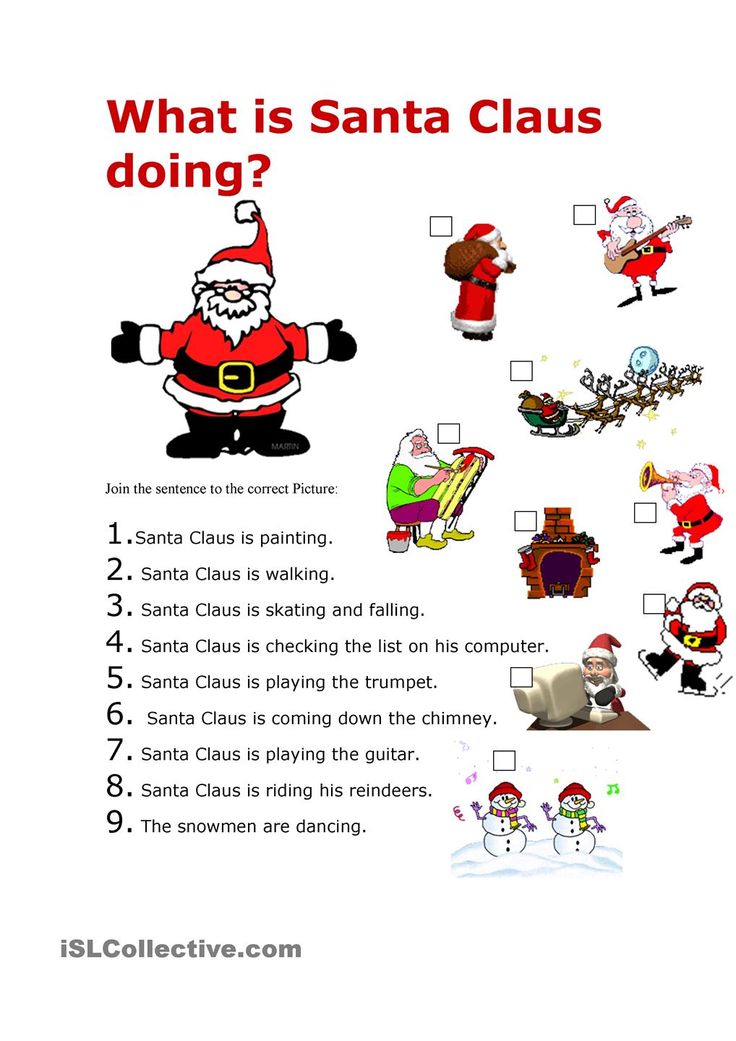 her eyes light up so much when she hears about Santa Claus, and she also believes in the tooth fairy who regularly gives her gifts for every tooth that falls out. nine0128
her eyes light up so much when she hears about Santa Claus, and she also believes in the tooth fairy who regularly gives her gifts for every tooth that falls out. nine0128
“My daughter is 11 and my son is 10 years old, my son had doubts for a long time, he told me that there was no Santa Claus, and that we put presents with dad, but I always convinced him. Every year I wrote a letter on behalf of Santa Claus, stamped it, put it in an envelope, and threw it in the mailbox. My opinion is that children should have a fairy tale, they should believe in a miracle.
“My 9 and he still believes, and thank God! There must be a fairy tale in childhood! He writes letters every year, asks himself and his younger brother, sometimes even me))) Regarding Santa Claus at the holidays, we decided that Santa Claus is alone and it’s hard for him to be everywhere at once, so the artists help him and play him for the kids, Therefore, Santa Clauses always look different. And gifts under the Christmas tree are received from him only by those who believe in him, because miracles happen only to those who believe in them))». nine0128
nine0128
Stories of parents whose children already know
“My eldest son was 10 years old when I decided that he was big and should already understand that gifts are not given by Santa Claus. And here is the New Year, I give him a gift, with the words: Son, you are no longer small and you understand that WE buy and give gifts to you. Here's a gift for you, Happy New Year, dear!!! You won't believe it, he asked, but the helicopter and sweets last year were also you? And he cried, yes, at the age of 10 he cried that there was no miracle. I cursed myself for those words, well, why did I say that, let him know from others ... ". nine0128
“Mine were 11 and 12 when I told them. Yes, she herself said that there is no Santa Claus. Because at that moment it was financially difficult for us to buy gifts for the two of them both from Santa Claus and from ourselves. Yes, it was so established in our country that Santa Claus is Santa Claus, and mother should also congratulate children on the New Year, just like they mother.